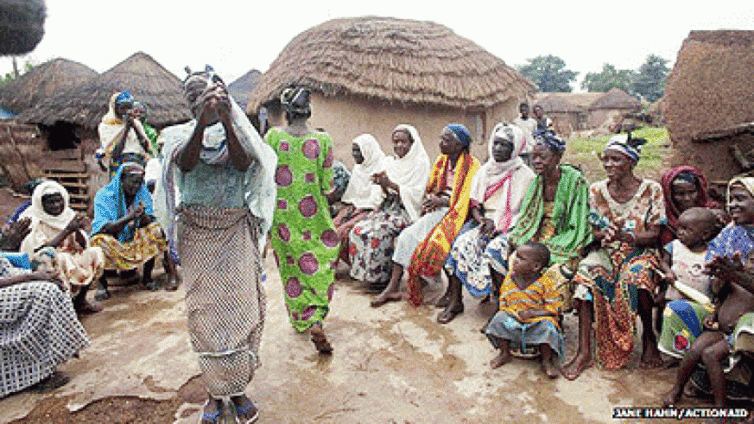The Sanneh Institute is asking for signatures on a petition to help women who were ostracised into alleged ‘witch camps’ to safely return home.
In May 2021, the Sanneh Institute conducted research at five alleged witch camps in Northern Ghana. Executive Director, Prof. John Azumah visited and interacted with those involved in the camps.
Belief in witchcraft is widespread across Africa and the report says that accusations disproportionately affect women typically in their mid-50s to late-70s.
Those accused of witchcraft often come to these camps to flee the communities that ostracized them.
“The moment an accusation is made, those accused are literally on their own. Even spouses and grown-up biological children are afraid to come to their defence,” the report says.
Those who come to these alleged witch camps are barred from returning home because of gatekeepers such as traditional priests and shrines who oversee the camps
According to the report, many of the camps don’t allow people to visit on their own. Gatekeepers are present during visits which can prevent the victims from talking candidly about their experiences at the camp.
Traditional priests at the camps often need to perform final rituals before allowing anyone to leave but these rituals typically come with a cost.
Food supplies are also “virtually non-existent” according to the report. Some people even have to pick grains from the ground just to survive.
The report claims that the traditional priests and the aid from NGOs have a stake in these camps so there are no plans to shut them down.
This is despite the abuse at the camps that include rape, monetary exploitation, verbal and emotional abuse, and forced labor without pay.
The report revealed that the majority of victims do not want to be in the camps. It says “Others would be happy to relocate to other communities but lack the means to do so and also cannot pay for the final rituals.”
Recommendations for the safe return of the accused
The Sanneh Institute has come up with four recommendations to help the accused be able to safely relocate or return to their communities.
- Relief should be provided to the accused by targeting the victims who are able to safely return home or relocate.
- Educating communities against witchcraft accusations in places like churches and mosques can protect the accused from further abuse.
- Legislation should be used as a deterrent and protect people from future accusations. The Sanneh Institute says that the Parliament of Ghana should pass a law against witchcraft accusations.
- Reintegrating victims into their communities and allow them to return home safely.
Latest Stories
-
Thousands gather to bid farewell to ageless Ga music icon Naa Amanua Dodoo
5 minutes -
From despair to hope: Khadijah Bawuma receives life-changing scholarship after Myjoyonline report
23 minutes -
Mob kills seven suspected kidnappers in Nigeria’s Edo state
1 hour -
Joseph Paintsil to make injury comeback after six weeks out
1 hour -
14 arrested over missing ECG containers at port
2 hours -
Energy Minister demands forensic audit over missing ECG containers
2 hours -
Joseph Paintsil unveils debut EP ‘Emergency’, set for April 4
2 hours -
Petition to remove CJ is not politically motivated – Adawuda
2 hours -
‘All that glitters is not gold’ – initial comments on Ghana’s Gold Board
3 hours -
3 in 4 voters rate Dampare’s performance very high during 2024 election – Mussa Danquah
3 hours -
Weija-Gbawe MP urges urgent action on flooding in Accra
3 hours -
I was surprised to have started against Madagascar – Jerome Opoku
3 hours -
It would’ve been helpful to receive initial comments from CJ on her removal – Dr Osae Kwapong
3 hours -
Adhering to transparency in CJ removal case enhances trust in judiciary – Dr Osae Kwapong
4 hours -
BoG surprises with first rate hike since July 2023
4 hours

